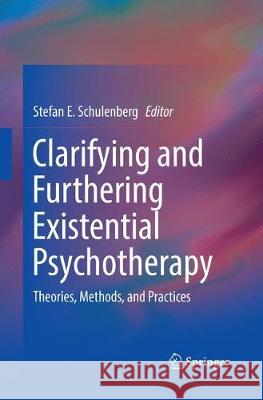Clarifying and Furthering Existential Psychotherapy: Theories, Methods, and Practices » książka
topmenu
Clarifying and Furthering Existential Psychotherapy: Theories, Methods, and Practices
ISBN-13: 9783319809601 / Angielski / Miękka / 2018 / 161 str.
Kategorie:
Kategorie BISAC:
Wydawca:
Springer
Seria wydawnicza:
Język:
Angielski
ISBN-13:
9783319809601
Rok wydania:
2018
Wydanie:
Softcover Repri
Ilość stron:
161
Waga:
0.25 kg
Wymiary:
23.39 x 15.6 x 0.97
Oprawa:
Miękka
Wolumenów:
01
Dodatkowe informacje:
Wydanie ilustrowane











